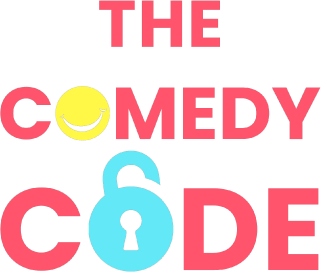The want statement you create for yourself and the arc of the scene are like the starting and stopping points. You need to be as clear and specific as possible regarding what your character is working toward, how much energy it takes to get it and exactly when they realize they achieved their goal or have been denied it outright.
With that in mind, here are three “Want” mistakes to avoid when breaking down a comedy script.
1. Creating “want statements” that are so general they’re not really even want statements. Whether you refer to it as your character’s want, goal, objective, or desire, we all know each character is trying to achieve something by engaging the other character(s) in the scene. Quite often actors identify their character’s want in a way that is so general it could apply to any scene.
When a want statement is worded along the lines of “I want her to understand that…” or “I want him to know that…” or “I want to prove why…” etc., all that is really happening is the actor is paraphrasing what the character is saying.
In other words, there’s no attachment to desire underneath the words, just the general and apparent idea of the words. This is particularly dangerous because the want statement is technically not wrong, however, it lacks heart and psychology. Ultimately, it’s not really an examination of the character’s desire, thus not even a want statement.
And isn’t it the case that we want everything we say to someone to be understood? That can be a desire, but it also applies to every word you speak. I will always want you to know what I’m saying, and I can prove a point with only intellect and no emotion. Remember most TV comedy scenes feature friends and family members talking to each other. Proving your point without identifying your desire will result in a chilly performance. If you’re proving something, by definition you’re inflexible and probably aggressive.
2. Identifying what the character doesn’t want in the scene and playing into that. Often actors play themselves out of the scene by identifying with what the character doesn’t want. The audience watches for engagement, not avoidance. When a want statement is phrased in the negative, “I want to get out of here…” or “I wish she’d stop nagging me…” or “I don’t want to get into this…” etc., the performance is doomed.
As with a generally worded want statement, there is real danger here; it may be true that the character feels that way in some measure. However, it’s almost never a good way to move through an entire scene, and usually it’s just flat out wrong. When I really want a conversation to stop, I end it. I don’t keep talking if what I’m most in touch with is my desire for it to stop.
This amounts to a misunderstanding of how conflict is enacted on television and film. Friends, family members, and co-workers don’t shut down or turn away from each other when approached with a problem or difficult conversation. They are open and available with a “bring it on” attitude, even if they don’t really want to be having that particular discussion. There is always something for each character to work towards in the scene. Actors who book know how to find it.
3. Failing to pinpoint the climax of the scene and understand why it’s so important. The climax can be defined as the point of greatest tension in the scene and the turning point in the narrative arc from rising action to falling action.
Stated more simply: The stopping point of the want. Playing into your want without knowing the exact stopping point is a bit like reckless driving; too slow and cautious confuses other drivers. Blaze past the finish line and you look like a maniac. You want to drive as skillfully and quickly as you can and be able to stop on a dime.
If the climax is only a vague idea, actors don’t accelerate into the scene as much as they could, creating a performance that’s fine, but boring. Actors often worry about being too big and doing too much in comedy, when in fact, they often aren’t doing enough.
You can and should be throwing new (diverse, exciting) strategies and tactics into the scene until you get what you want or realize you won’t. Accurately identifying the climax of a scene increases the likelihood you’ll play your want statement to its maximum potential.
In summary, want what you want with passion and purpose, and work for it with energy until you get it or get denied.

